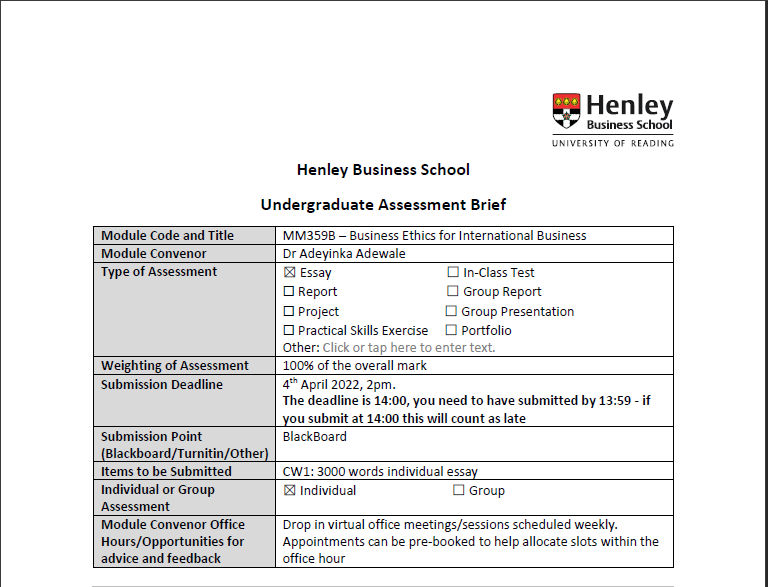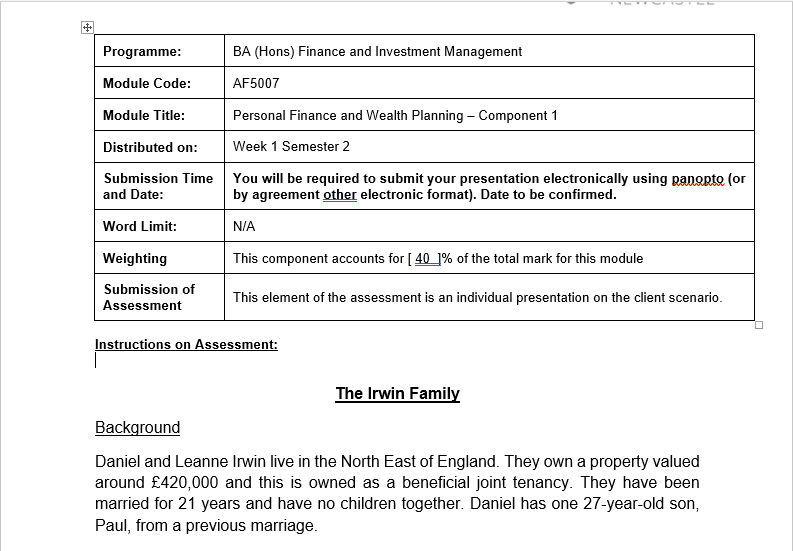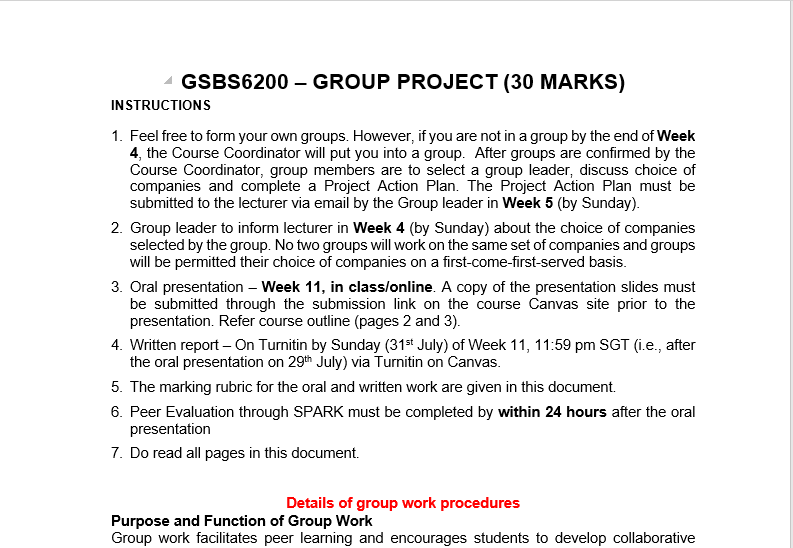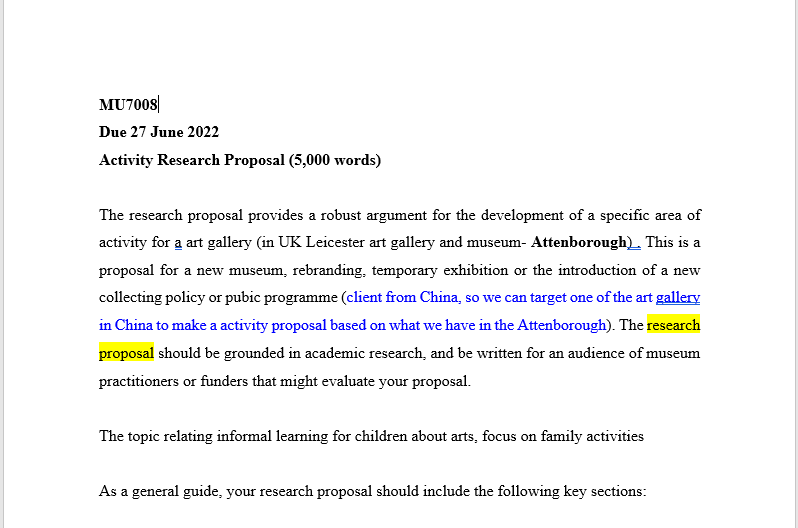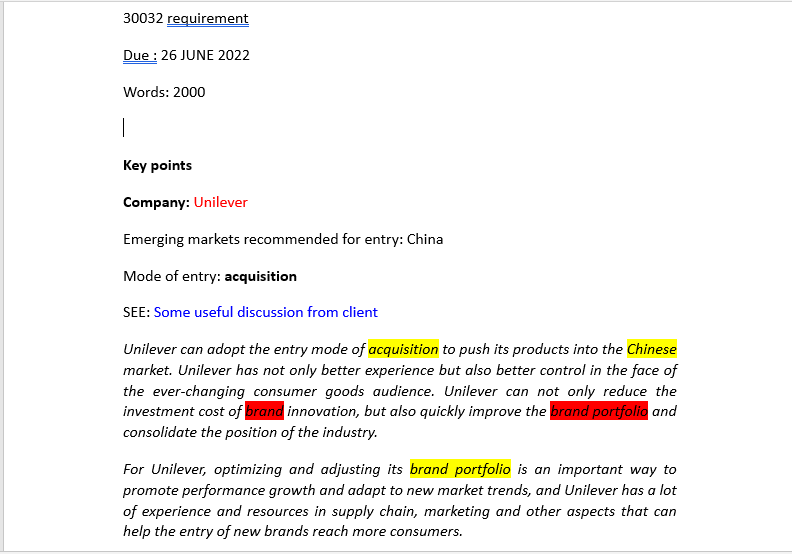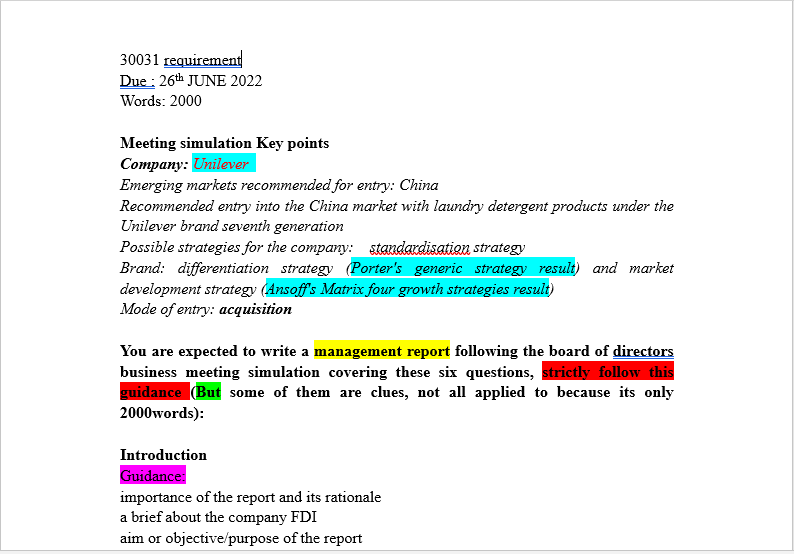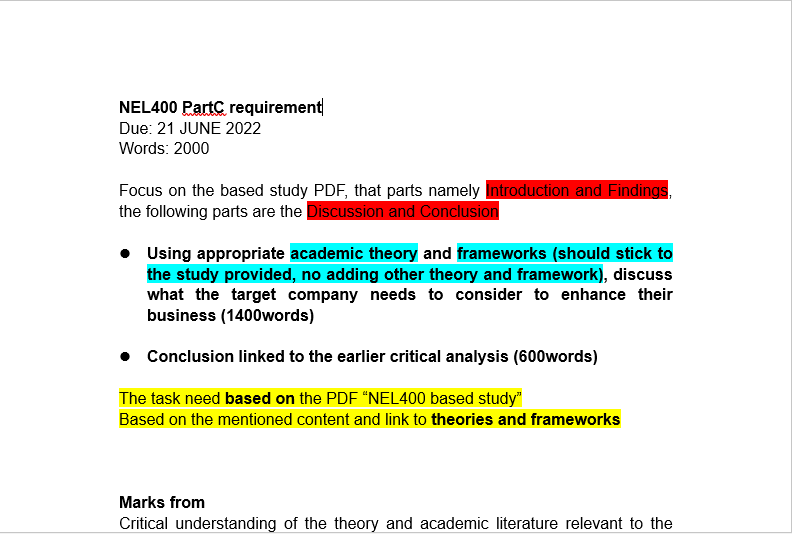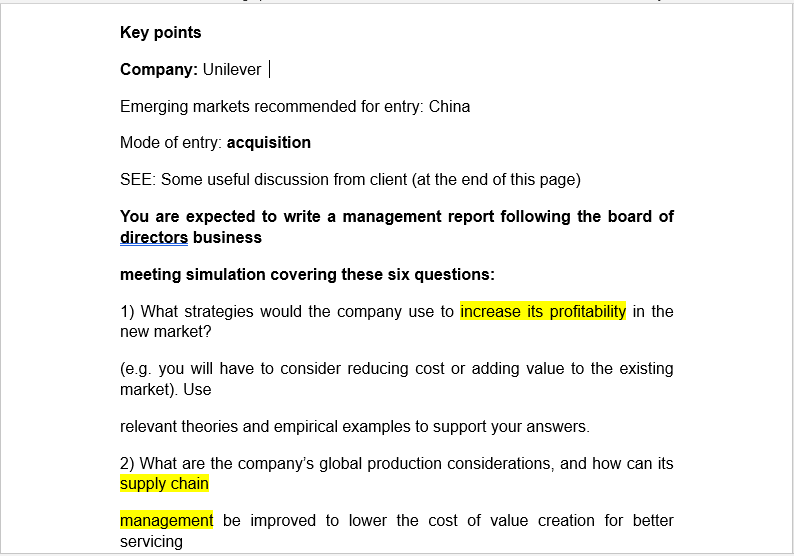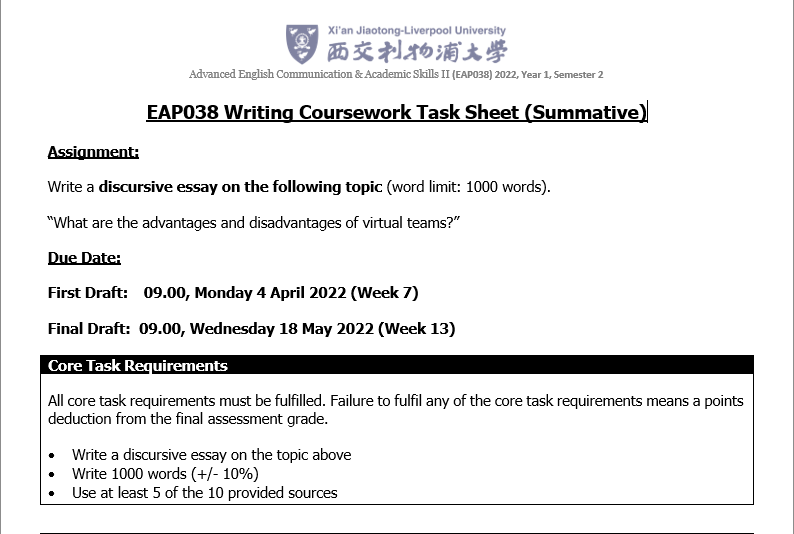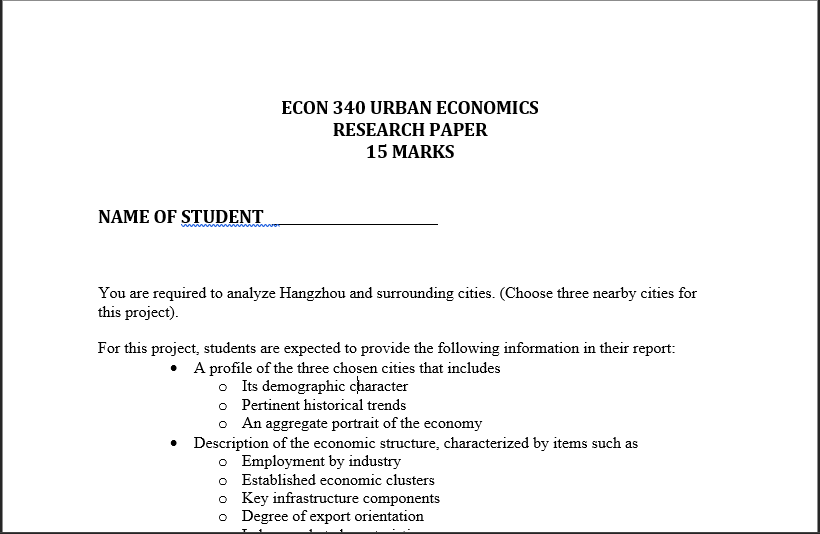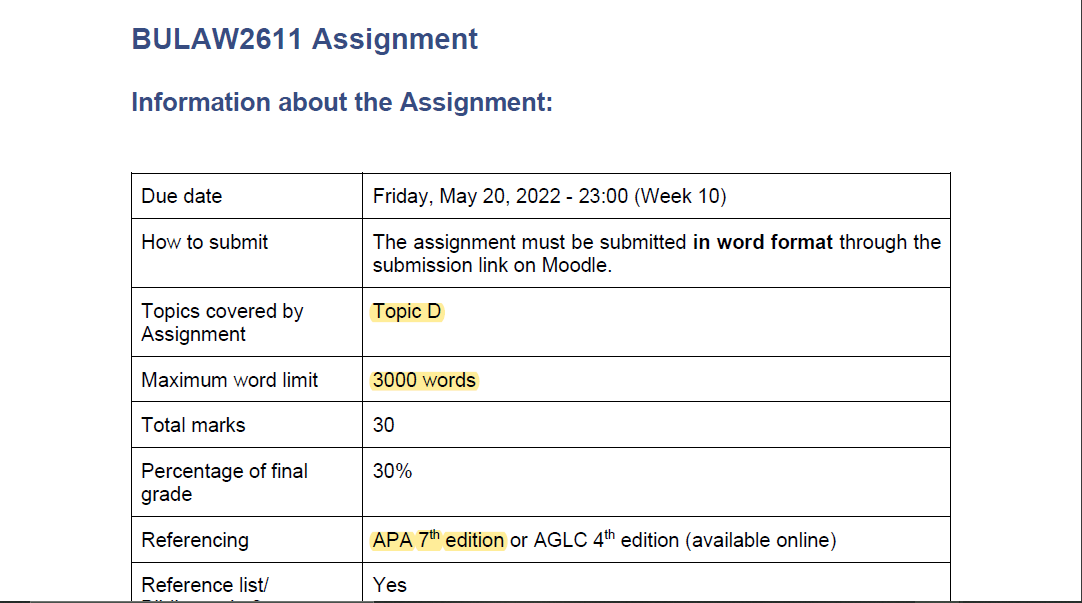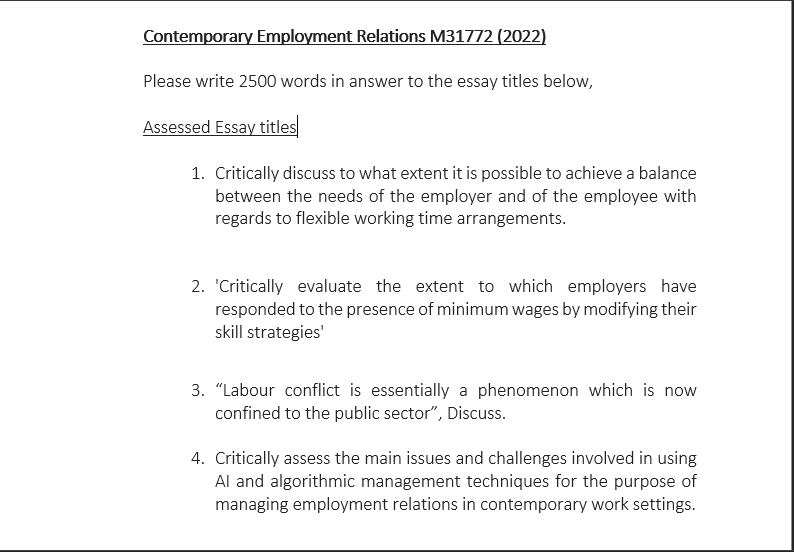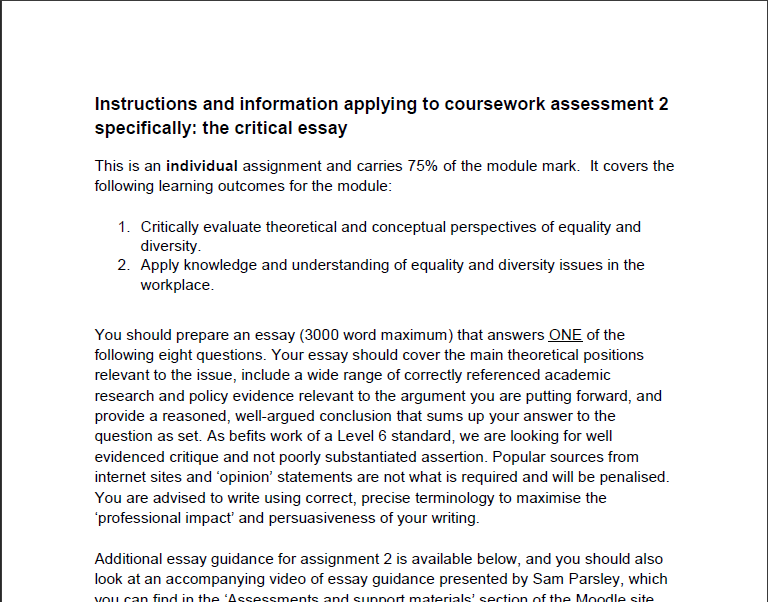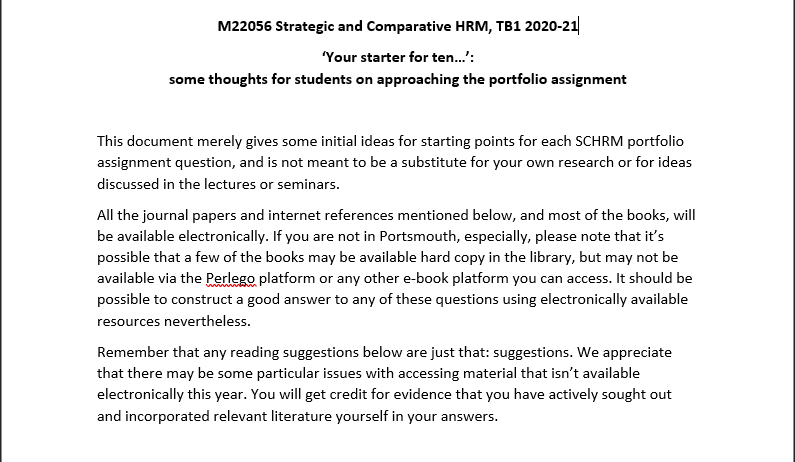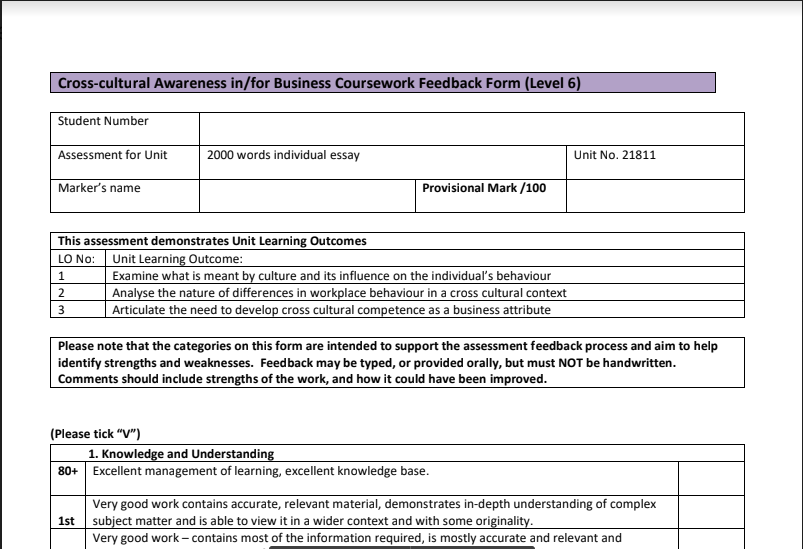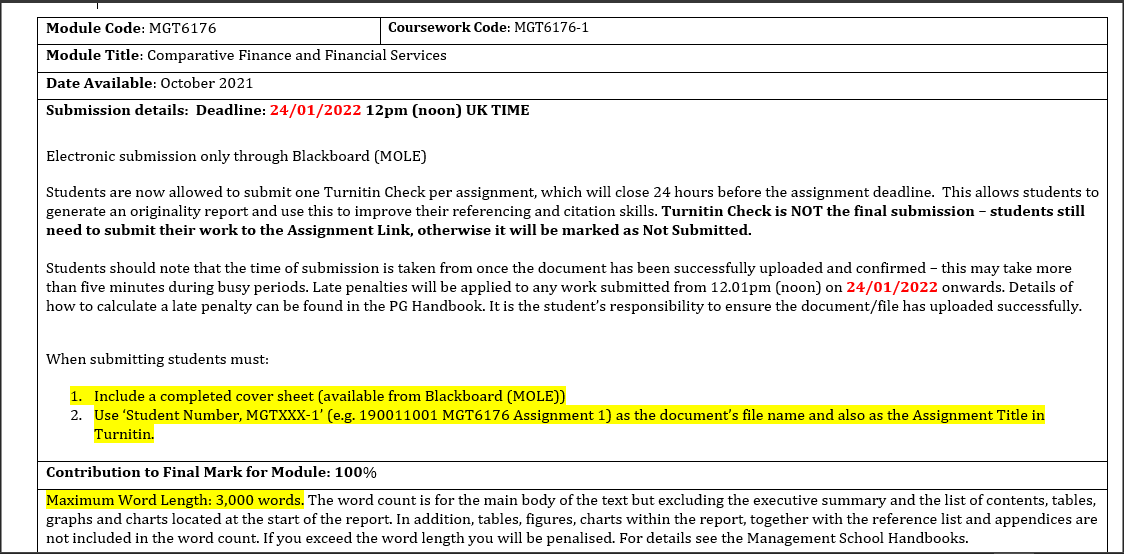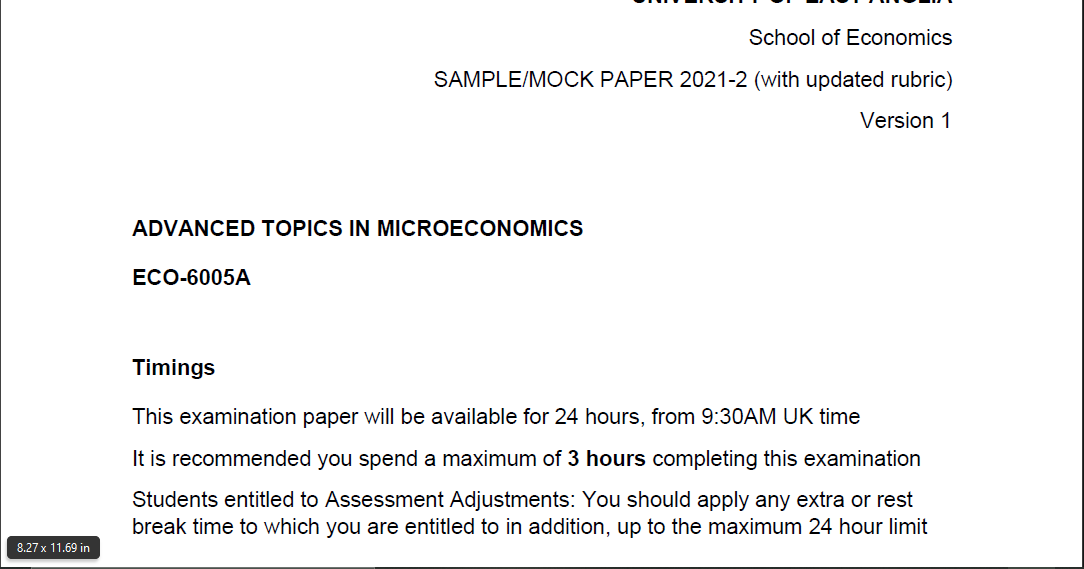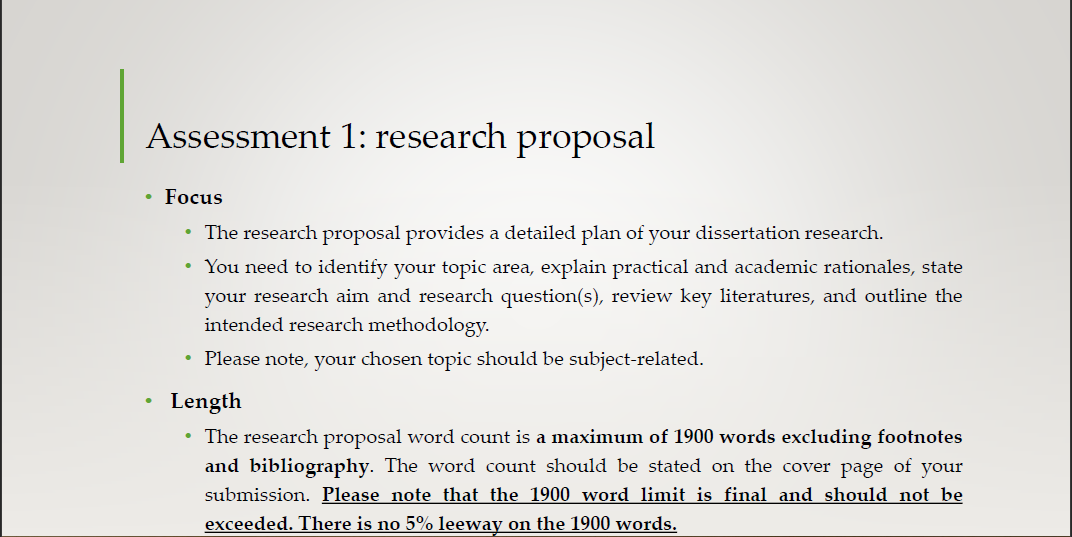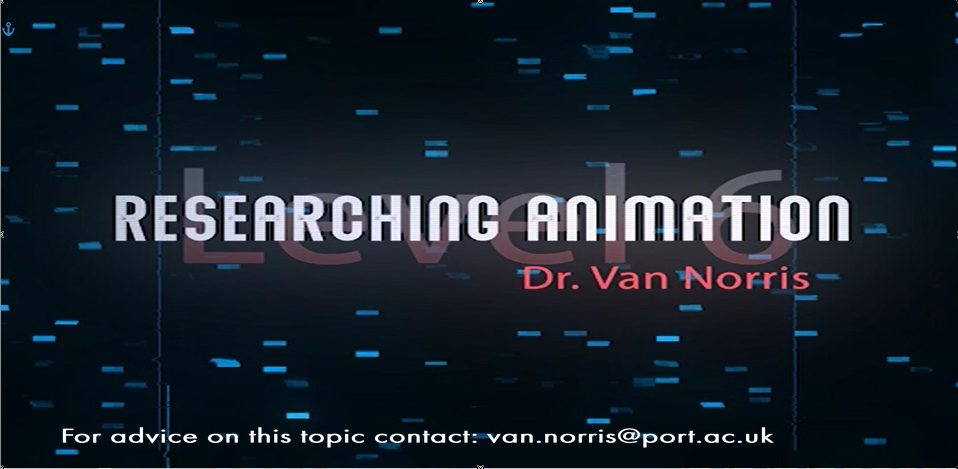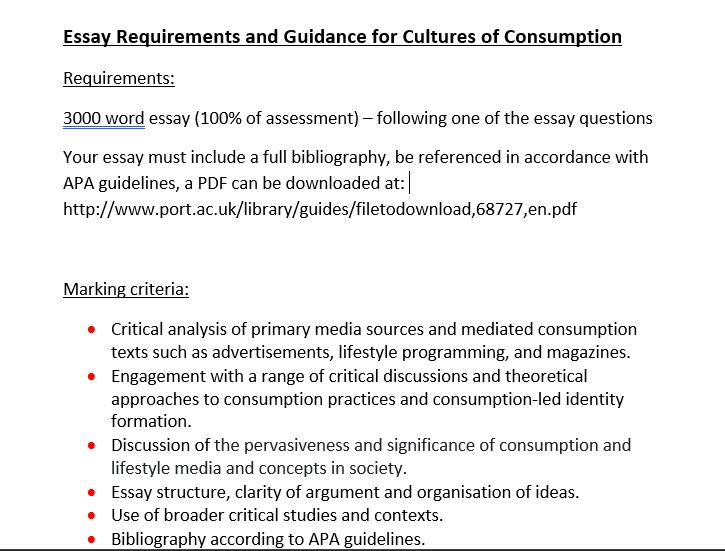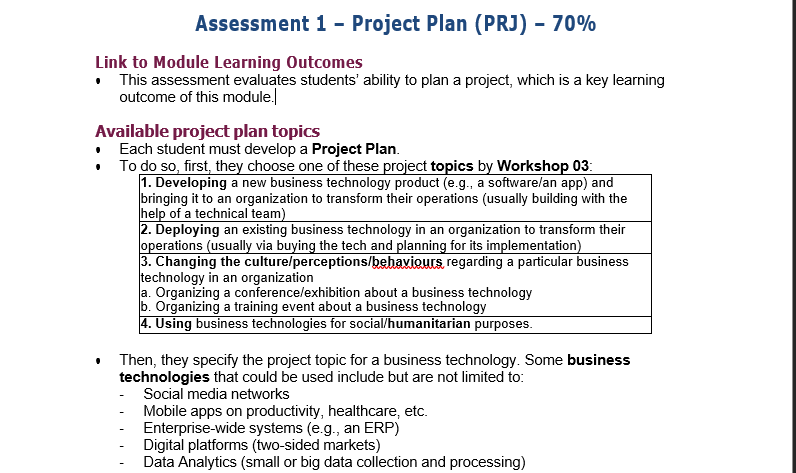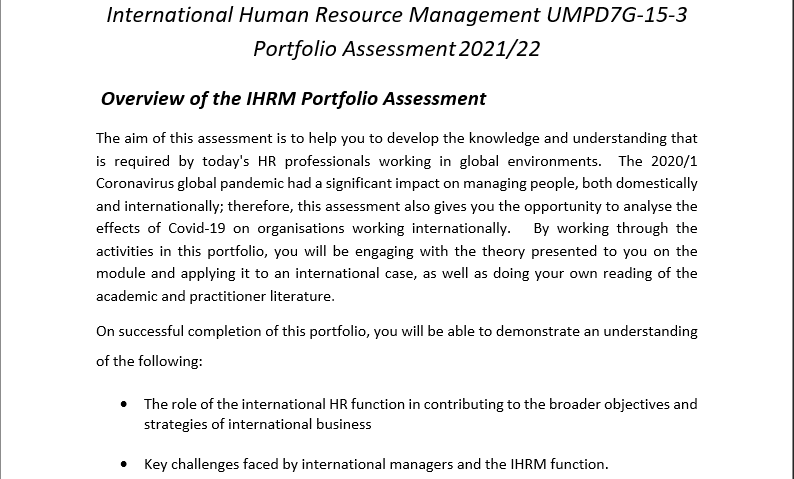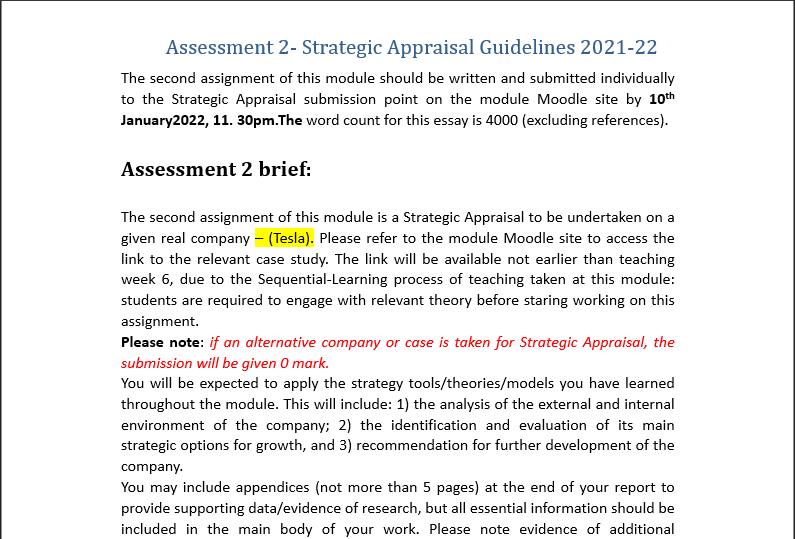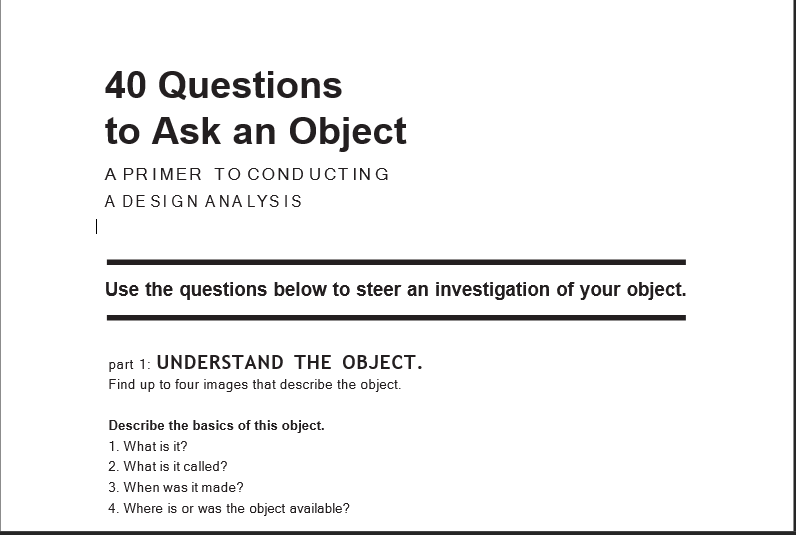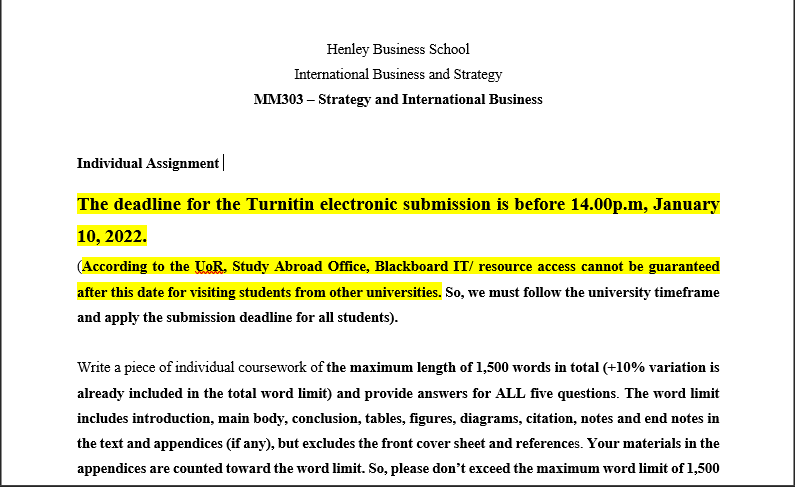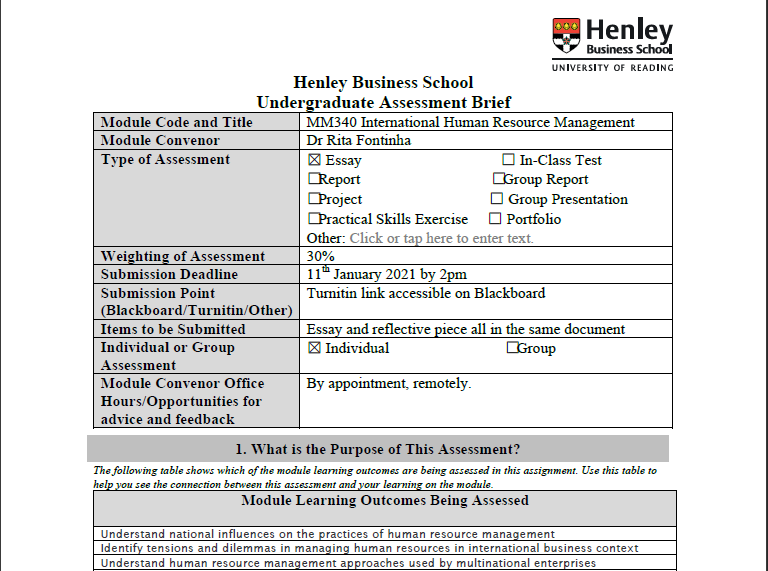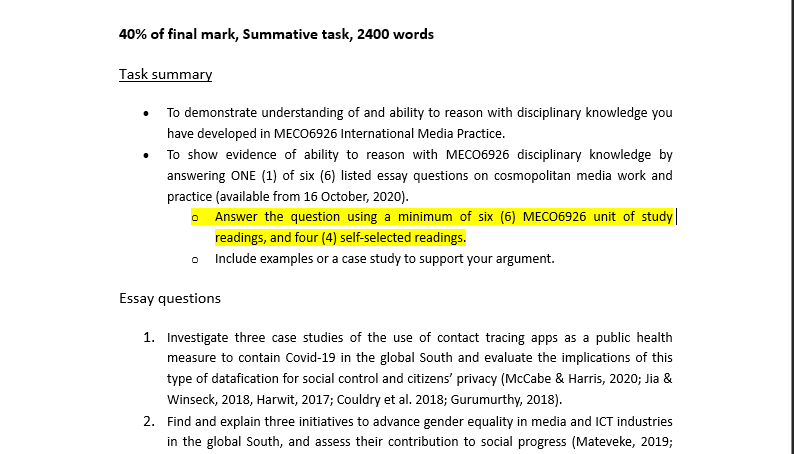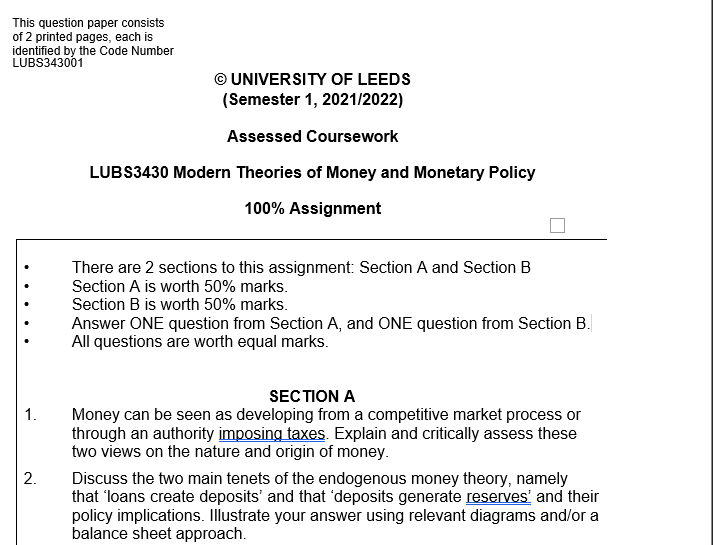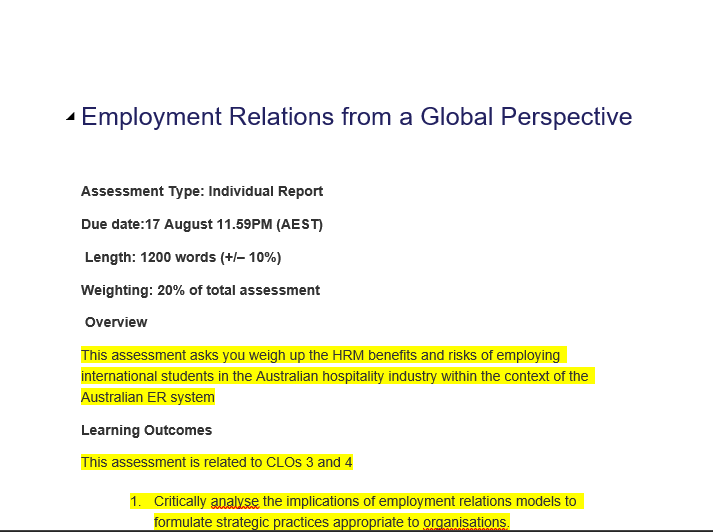|
Module Code and Title |
MM359B – Business Ethics for International Business |
|
Module Convenor |
Dr Adeyinka Adewale |
|
Type of Assessment |
☒ Essay ☐ In-Class Test
|
|
Weighting of Assessment |
100% of the overall mark |
|
Submission Deadline |
4th April 2022, 2pm. The deadline is 14:00, you need to have submitted by 13:59 - if you submit at 14:00 this will count as late |
|
Submission Point (Blackboard/Turnitin/Other) |
BlackBoard |
|
Items to be Submitted |
CW1: 3000 words individual essay |
|
Individual or Group Assessment |
☒ Individual ☐ Group |
|
Module Convenor Office Hours/Opportunities for advice and feedback |
Drop in virtual office meetings/sessions scheduled weekly. Appointments can be pre-booked to help allocate slots within the office hour |
|
1. What is the Purpose of This Assessment? |
 |
The following table shows which of the module learning outcomes are being assessed in this assignment. Use this table to help you see the connection between this assessment and your learning on the module.
|
Module Learning Outcomes Being Assessed |
|

|
2. What is the Task for this Assessment? |
 |
|
Task (attach a separate briefing document if required) |
Individual essay: Students need to individually submit 3000 words essay covering their answers and analysis to the chosen topic option.
Option 1 In 2015-6 a joint decision had been taken by Google, Facebook and Twitter that any accounts and or messages with a content that contains racist and /or homophobic comments, or that motivates towards the committing of violent and unlawful acts will be automatically erased without any prior notification or the consent of the account owner(s), whoever they are. See article here Facebook, Google, Twitter agree to delete hate speech in 24 hours:
(a) Utilise TWO ethical theories to analyse this joint action. Critically compare and contrast the positions of these theories on the given subject matter focusing on what these two theories recommend as potential solution.
Option 2 A great deal of plastic and various non-biodegradable rubbish is being thrown carelessly into the nature and even governments in many parts of the world do not do enough or lack awareness of how rubbish disposal accumulated is killing the water and other natural resources and life in the planet. It is simply non-sustainable and a rethink is needed on rubbish disposal as landfill solution as it proves to be hugely polluting water resources. This has been a recent focus in the press, for example see About 26,000 tonnes of plastic Covid waste pollutes world’s oceans – study | Pollution | The Guardian
(a) Utilise TWO ethical theories to analyse this problem. Critically compare and contrast the positions of these theories on the given subject matter focusing on what these two theories recommend as potential solutions. |
2

|
Guidelines/Details of How to Prepare Your Submission |
provided. Ensuring well supported, logical flow of throughts and arguments is also important |
|
The assessment criteria to be used for marking this piece of work |
Refer to the marking criteria rubric at the end of this document. |
|
Self-Regulation: Make sure That You… |
|
|
Three Key Pieces of Advice Based on the Feedback Given to the Previous Cohort who Completed This Assignment |
|
|
For Group Work Only: |
Elements of Group Working:
|
|
Formatting Guidelines |
None (but use of sub-headings are recommended) |
|
|
|
|
Word Limit/Guidance and Penalty Applied |
3000 words (absolute maximum) -10% is allowed but not +10% |
|
Referencing Style |
Following the University guide: |
|
Guidance on Academic Misconduct (including using Turnitin practice area) |
The work you produce must be your own or that of members of your group if it is a group assessment.
You should ensure that the work you produce adheres to the University’s statement on academic integrity and to the regulations regarding academic misconduct (such as plagiarism and cheating). You can find information about this at: http://www.reading.ac.uk/internal/exams/Policies/exa- misconduct.aspx
You are encouraged to put a draft of your work through the Turnitin practice area to satisfy yourself that the work is your own original work. You can find this in your module area on Blackboard. You can seek advice from the Module Convenor or your Programme Administrator. |
|
4. What Resources Might I Use to Prepare My Work? |
 |
|
|
 |
|
5. Late Submission Arrangements |
 |
|
Point of Submission : Click or tap here to enter text. Late Submission Penalty: ☒ The University standard penalty apply
|
|
Plagiarism: ☒ The University’s standard policy on Academic Misconduct applies
|
4

|
Timing of feedback: ☒ Within 15 days of submission deadline
|
|
Type of feedback:
☒ Mark ☐ Generic Feedback ☒ Individual Feedback ☐ Comments written on the assessment
|
|
Location of Feedback:
☒ Blackboard ☐ Turnitin ☐ RISIS
|



Assessment Criteria Rubric for Marking
Module Code: MM359B Module Title: Business Ethics for International Business Assessment Task: Individual Essay Academic Year: 2021/22
|
GRADE BANDS |
FIRST CLASS |
2:1 |
2:2 |
3RD (THRESHOLD) |
FAIL |
|
|
ASSESSMENT CRITERIA |
80+ OUTSTANDING |
70 – 79 EXCELLENT |
60 – 69 VERY GOOD |
50 – 59 GOOD |
40 – 49 SATISFACTORY |
39 AND BELOW |
|
Evidence of Knowledge: Detail and depth of subject knowledge; relevance of the knowledge to the topic |
Extremely detailed and relevant |
Very detailed and relevant |
Detailed and relevant |
Adequately detailed and relevant |
Detailed and relevant only in parts |
Not detailed and relevant |
|
Evidence of scholarship: Ability for logical problem definition; and use of examples to illustrate arguments |
Extremely logical and well argued |
Highly logical and well argued |
Logical and well argued |
Fairly logical and well argued |
Not always logical and well argued |
Confused |
|
Academic Criticality: Application of relevant theory and evidence, use of business examples, critical discussion and conclusions |
Extremely critical |
Highly critical |
Critical |
Fairly critical |
Not always critical |
Not critical |
|
Originality and Independence Evidence of original and creative approach when considering moral arguments detailed in the question; evidence of independent thinking |
Extremenly original and independent |
Highly original and independent |
Original and independent |
Fairly original and independent |
Not original and independent enough |
Not original and independent |
|
Structure and style: Clarity of organisation and structure; excellence in communication of arguments and style |
Extremely well- structured |
Very well-structured |
Well-structured |
Adequately structured |
Not sufficiently structured |
Not structured |
Note: Student coursework must adhere to the University of Reading policy on Academic Misconduct. Further information is available at: https://www.reading.ac.uk/exa-misconduct.aspx
Order to get the full answer

